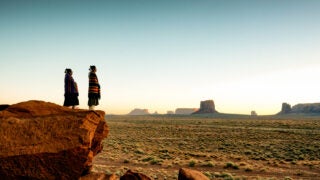The university’s new public policy institute embodies the USC trustee’s vision for solving stubborn problems with scholarship and bipartisan dialogue.
Public Policy
News Listing
USC Price’s Homelessness Policy Research Institute examined the encampment outreach effort in Venice Beach.
From climate change to sex education, USC Price professor brings behavioral science to public policy
Wändi Bruine de Bruin uses behavioral science to understand what motivates people's behavior and how to change it to achieve better policy outcomes.
Climate change has contributed tensions to the largest river restoration and dam removal project in U.S. history. USC experts explain.
Testimony and research from experts at the USC Price School of Public Policy and the USC Schaeffer Center for Health Policy & Economics are informing decisions at the White House and in Congress.
Some states cap the number of ounces or grams consumers are allowed to buy — but even a little cannabis can amount to a lot of THC, said Rosalie Liccardo Pacula of the USC Price School of Public Policy.
Research into the pandemic experiences of the Navajo Nation and the Klamath Tribes underscores the need for the U.S. to honor tribal water rights legally recognized — but never delivered on — for over a century.
USC study finds that personal voluntary behaviors to avoid infection also played a role in the downturn.
USC Price students are recognized for their work on land contracts, legal agreements that allow homebuyers to make payments directly to the seller instead of a bank.
When you factor in the cost to the environment, USC Price’s Marlon Boarnet notes, the price at the pump — even at today’s prices — doesn’t cover the true cost of using gasoline.







